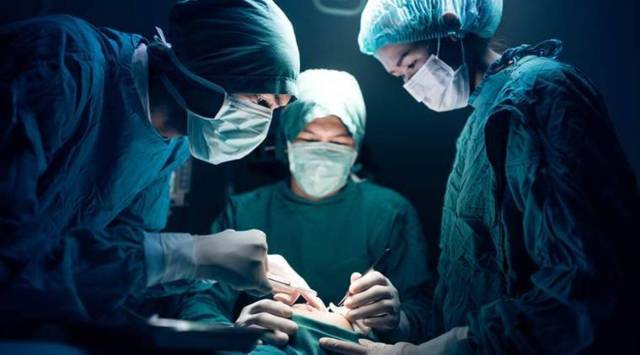Union Budget 2023: Why are Centres of Excellence for R&D in pharmaceuticals significant?
Industry experts decode the cascading impact of Budget announcement on skill development, innovation and indigenous development of medical devices
 Dr Ch Madhusudan, head of the department of surgical gastroenterology, said that Manindra’s health was being monitored closely and that he had the potential to lose 70-80 kg more in the coming months.(Representational image/File)
Dr Ch Madhusudan, head of the department of surgical gastroenterology, said that Manindra’s health was being monitored closely and that he had the potential to lose 70-80 kg more in the coming months.(Representational image/File)Even as industry representatives welcomed the 2023-24 Budget speech by Union Finance Minister Nirmala Sitharaman, announcing that a new programme to promote research and innovation in pharmaceuticals will be taken up through centres of excellence, stakeholders believe that though a macro move, it will encourage skill development and innovation, which in turn will result in indigenous versions of medical devices.
Zydus Lifesciences Limited chairman Pankaj Patel said, “The medical devices sector will also stand to gain from the new multidisciplinary courses which will be introduced as they will bring in skilled talent, enable high-technology collaborations and promote research and manufacturing of these technologies in India.”
Terming the budget as “growth-oriented”, Zydus’ Patel added, “The life sciences and medical sector will stand to benefit greatly with the impetus on innovation and R&D…Setting up of centres of excellence for innovation and the Government’s initiatives to encourage investments in R&D will go a long way in bringing Indian Innovation to the forefront.”
Daniel Mazon, vice chairman and managing director, Phillips Indian Subcontinent, said, “There is a higher emphasis on expanding health infrastructure and development of technology-based solutions in India. The decision to set up three centres of excellence of Artificial Intelligence (AI) will foster innovation to develop cutting edge applications and scalable solutions in healthcare. We are also encouraged by the Government’s focus on increasing the number of skilled healthcare professionals in the country through new educational institutions as it will increase accessibility to quality healthcare.”
“The centres of excellence in the medical devices sector, focussing on skill development through dedicated multi-disciplinary courses, is a positive indicator for the medtech industry which is largely import-dependent at the moment,” says Ganesh P Sabat, CEO, Sahajanand Medical Technologies Ltd and Co-Chair, FICCI Medical Devices Committee, who hopes skill and innovation will result in indigenous medical aids.
However, without any incentives for domestic manufacturers to manufacture medical devices, it would be difficult to meet self-reliance targets. As forum coordinator of the Association of Indian Medical Device Industry (AiMeD) Rajiv Nath said, “It is disheartening that against our optimistic expectations and assurance by the various government departments, the government has not announced any measures to end the 80-85 per cent import dependence forced upon India and an ever-increasing import bill of over Rs 63,200 crore….It is very painful to see the plight of domestic industry players shutting shop as the local industry cannot compete with cheaper Chinese imports. Imports of medical devices from China went up by nearly 50 per cent last year from Rs 9,000 crore to Rs 15,000 crore on account of low duties and convenience to import.”
He, however, welcomed the budgetary announcement that dedicated multidisciplinary courses for medical devices will be supported in existing institutions to ensure availability of skilled manpower for futuristic medical technologies, high-end manufacturing and research. Nath said, “The only positive announcement was the plan for skilling manpower for manufacturing medical technologies.”



- 01
- 02
- 03
- 04
- 05




























